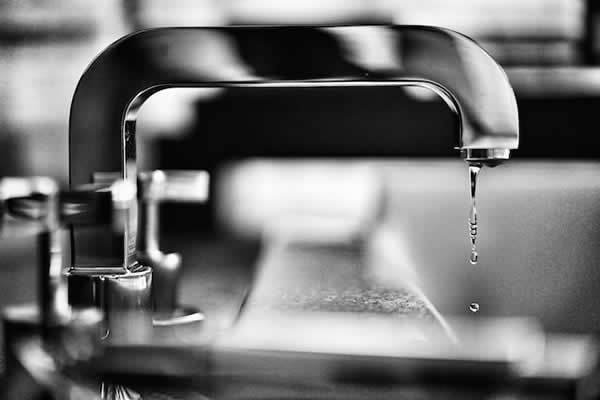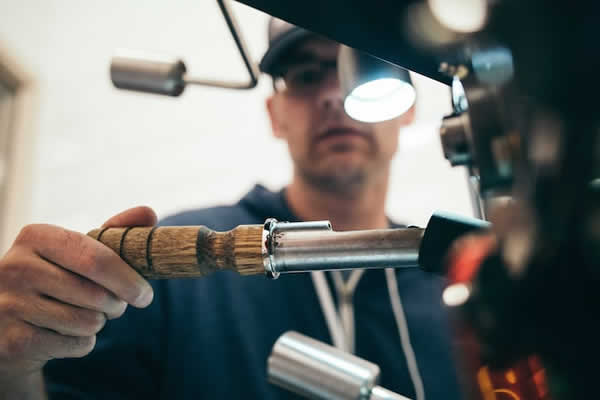Water leaks can cause a lot of damage to your home. In fact, they are the number one cause of property damage in the United States. If you want to protect your home from water damage, it is important to know how to prevent water leaks. In this blog post, we will discuss some tips that will help you do just that! We will also touch on what to do if you have a water leak. If you follow these tips, you can help keep your home safe and dry! So, let's get started.

Use Custom O-Rings
O-rings are commonly used in a variety of applications to prevent leaks. They are made from a variety of materials, including rubber, silicone, and neoprene. O-rings can be custom-made to fit the specific application for which they are being used. This makes custom o-rings an ideal option for preventing water leaks. However, there are a few things you should keep in mind when choosing O-rings for water leak prevention:
- Choose the right material: O-rings come in a variety of materials, including rubber, silicone, and neoprene. Each type of material has its own benefits and drawbacks. Rubber is the most common type of material used for O-rings, and it is relatively cheap and easy to find. Silicone is more durable than rubber and can withstand higher temperatures; however, it is also more expensive than rubber. Neoprene is resistant to both oil and heat, making it a good choice for applications that require high resistance to corrosion or wear and tear.
- Choose the right size: It is important to choose the right size O-ring for your application. If the ring is too small, it will not be able to create an effective seal; if the ring is too large, it will be difficult to install.
- Choose the right hardness: O-rings are available in a variety of hardness levels, from soft to hard. The hardness of the O-ring you choose should be based on the application for which it will be used. For example, softer rings are typically used for applications that do not require a tight seal, such as in low-pressure systems. Harder rings are better suited for applications that require a tighter seal, such as in high-pressure systems.
Use Teflon Tape
Teflon tape is a type of tape that is made from polytetrafluoroethylene (PTFE). It is commonly used to seal pipe threads and prevent leaks. The tape is wrapped around the outside of the threads, and when the pipe is screwed into place, the tape creates a watertight seal. Teflon tape is available in a variety of widths and thicknesses. It is important to choose the right size of tape for your application. For example, tape that is too thin will not be able to create an effective seal, while tape that is too thick may make it difficult to screw the pipe into place.
Regularly Inspect Your Plumbing
One of the best ways to prevent water leaks is to regularly inspect your plumbing. This includes checking for any cracks or leaks in the pipes, as well as checking the fittings and connections. If you find any damage, it is important to have it repaired as soon as possible to avoid further damage. Some common signs of plumbing problems include water stains on the ceiling or walls, water pooling around the base of the toilet, low water pressure, frequent clogs, or unusual noises coming from the pipes. If you notice any of these signs, it is important to have your plumbing inspected by a professional.

Use a Water Leak Detection System
Another great way to prevent water leaks is to use a water leak detection system. These systems can be installed in both new and existing homes. They work by detecting the presence of water and then sounding an alarm to alert you of a leak. Water leak detection systems are an ideal way to prevent water damage in your home, as they can help you identify a problem before it becomes serious. When choosing a water leak detection system, it is important to consider the type of system, the features offered, and the price.
Be Diligent about Maintenance
One of the best ways to prevent water leaks is to be diligent about maintenance. This includes regularly checking your pipes and fittings for any signs of wear and tear. It is also important to have your plumbing inspected by a professional on a regular basis. By being proactive about maintenance, you can help prevent small problems from becoming big ones.
Fix Dripping Faucets and Leaking Pipes Promptly
If you have a dripping faucet or a leaking pipe, it is important to have it fixed as soon as possible. These types of leaks can waste a lot of water and lead to higher water bills. In addition, they can also cause serious damage to your home if left unchecked. You can either fix the problem yourself or hire a professional to do it for you.
In the event of a serious leak, it is important to know where your water shut-off valve is. This valve is usually located near the water meter or main water line. By knowing where the valve is, you can quickly turn off the water in your home in the event of a leak. This will help prevent serious water damage.
Use Water-Saving Devices
There are a number of water-saving devices that can help you save water and prevent leaks. These devices include low-flow showerheads, faucet aerators, and toilet flappers. By using these devices, you can save water and reduce your risk of leaks. You can usually find these devices at your local hardware store.
Water leaks can be a serious problem, as they can lead to water damage and higher water bills. In addition, they can also cause serious damage to your home if left unchecked. There are a number of ways that you can prevent water leaks in your home. This includes using Teflon tape, checking your plumbing regularly, using a water leak detection system, being diligent about maintenance, fixing dripping faucets and leaking pipes promptly, and using water-saving devices. By following these tips, you can help reduce the risk of water leaks in your home.
